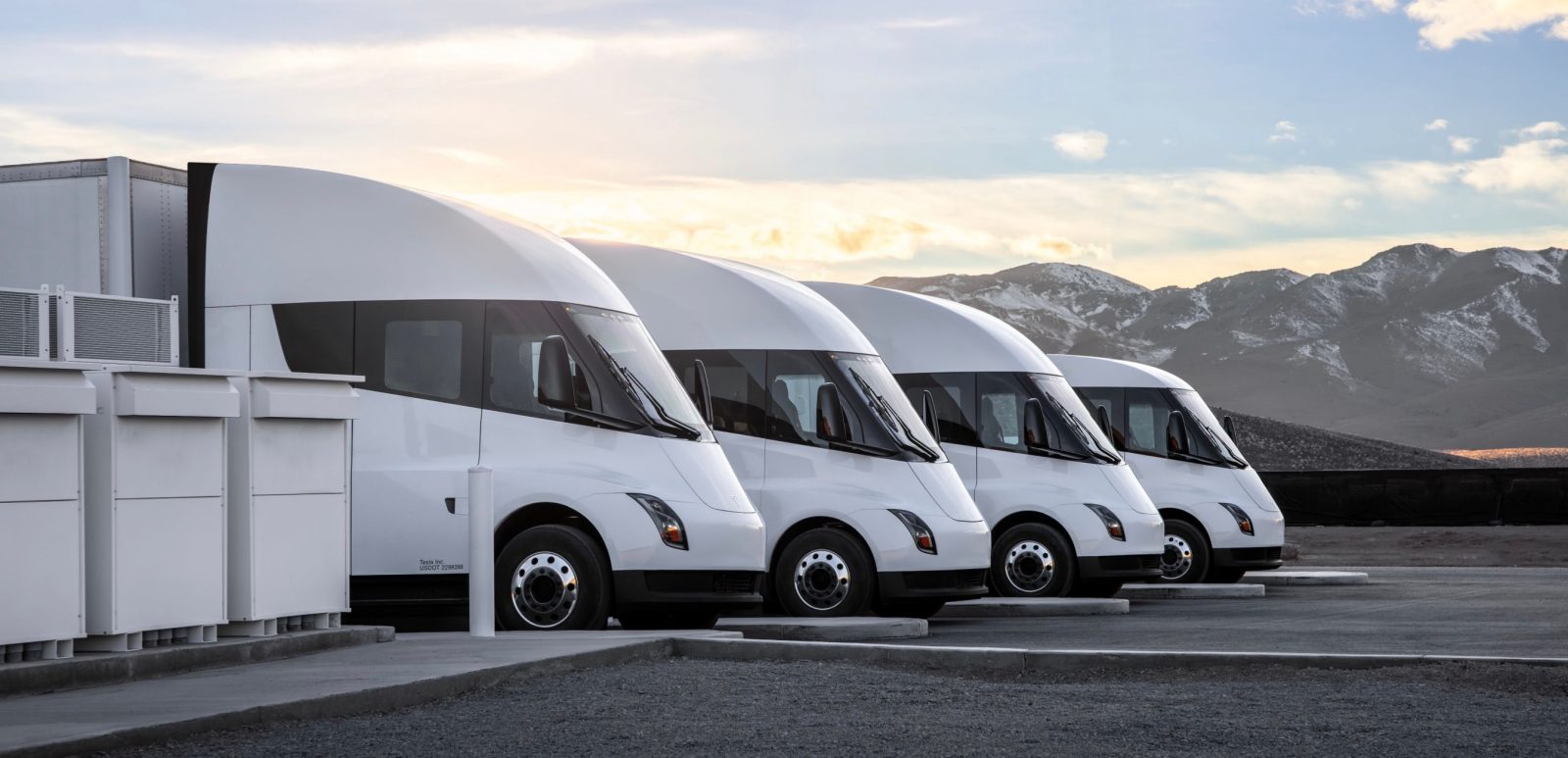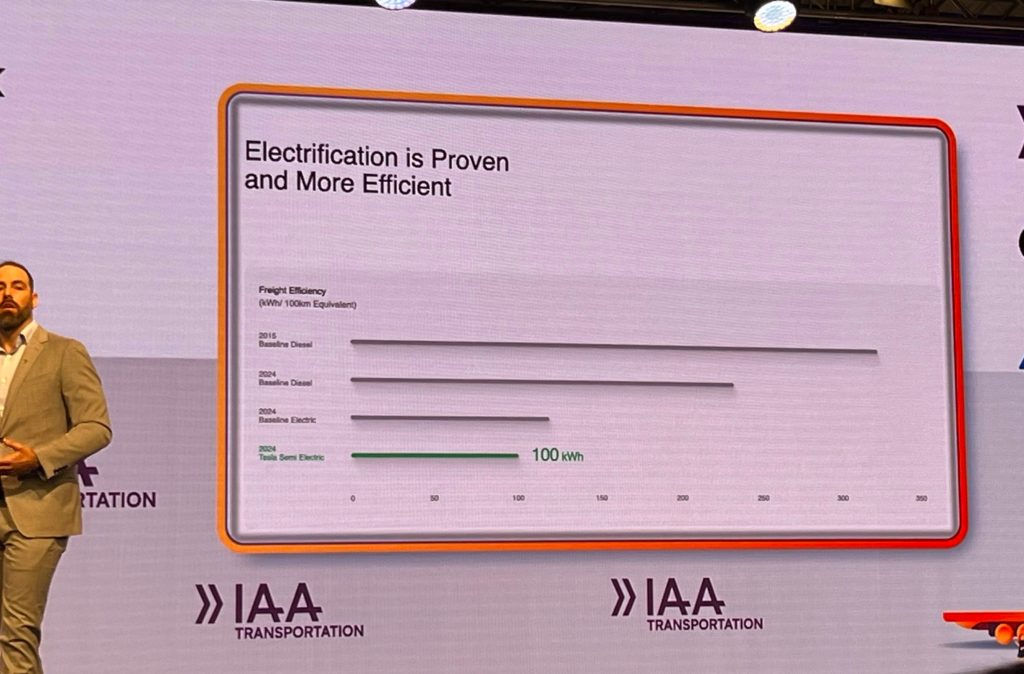
We learned a lot about Tesla Semi thanks to a new presentation from the head of the electric truck program at Tesla, including the fact that Tesla ran one of the trucks 250,000 miles (400,000 km) already.
Tesla Semi has already been “in production” for almost 2 years, but the production has been very limited and one could even argue that it was a “pilot” run until Tesla brings the vehicle to volume production at its new facility under construction in Nevada.
The automaker is believed to have built a fleet of about 100 Tesla Semi trucks and it is mostly using them internally and with its customer-partner PepsiCo.
Now, Dan Priestley, the head of the Tesla Semi program, has given a presentation at the IAA conference in Germany today to give an update on how the program is going.
A video of the presentation hasn’t surfaced yet, but people attending the event have released images of the slides and some of the highlights of the statistics revealed by Priestley:
For example, we learn that the Tesla Semi fleet has already traveled 7.5 million miles and that a single truck has traveled 250,000 miles (400,000 km) over the last 1.5 years.
Thanks to the resurgence of consumer electric vehicles, we already know that electric powertrains could deliver better performance in commercial trucks, but many still doubt that the batteries will have the energy capacity and longevity to make commercial electric trucking viable.
This data should help convince more people.
With the capacity to travel 1,700 km (1,000 miles) in a single day with virtually the same capacity of a diesel truck, Tesla is making the argument that a Tesla Semi can replace a diesel class 8 truck one-for-one.
Priestley also claimed that Tesla is seeing 95% uptime with the trucks, which is important as downtime means losing money for trucking companies.
The arguably most important information to come out of the presentation is that the current Tesla Semi fleet is proving an efficiency of 100 kWh to travel 100 km (62 miles):

At 1.6 kWh per mile, this is a little better than the 1.7 kWh per mile that Tesla previously predicted.
The engineer said that Tesla plans to deliver the electric trucks to more customers this year, but volume production is going to come with the new factory next year.
The goal is to reach an annualized production capacity of 50,000 trucks in 2026.
Electrek’s Take
This is awesome. Again, Tesla Semi is the program I am most excited about at Tesla right now. Based on its history of delivering efficient electric vehicles in volume profitably, I think Tesla is the one to make commercial electric trucks happen at scale.
There are already many competitors out there, but none are currently talking about 50,000 units per year, which would make a real impact on the industry, by 2026.
Top comment by David Suto
New truck stops will likely need to be located in places near transmission infrastructure. Not only do they need mega chargers but also lower power charging for overnight charging. A big benefit to truckers and the communities around those new truck stops will be no more idling diesel engines spewing emissions and noise.
If these numbers are accurate, I think it could actually work,
Now, the bigger problem to solve is going to be the infrastructure as we are going to adapt truck stops to support megawatt charging at scale. It’s not an easy problem, but it is solvable and worth doing to decarbonize commercial transportation.
If we couple that charging to cheap renewable energy, we have a winning solution.
Electric vehicles are best powered by renewable energy, like solar power and there’s no better solar power than the one you own. If you want to make sure you’re finding a trusted, reliable solar installer near you that offers competitive pricing, check out EnergySage. EnergySage is a free service that makes it easy for you to go solar – whether you’re a homeowner or renter. They have hundreds of pre-vetted solar installers competing for your business, ensuring you get high-quality solutions and save 20 to 30% compared to going it alone. Plus, it’s free to use and you won’t get sales calls until you select an installer and you share your phone number with them.
Your personalized solar quotes are easy to compare online and you’ll get access to unbiased Energy Advisors to help you every step of the way. Get started here.
FTC: We use income earning auto affiliate links. More.






Comments